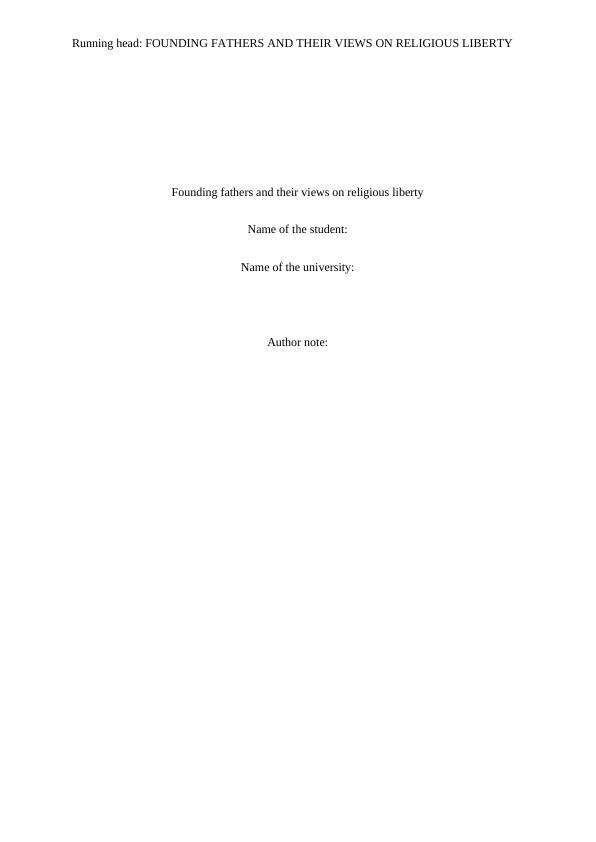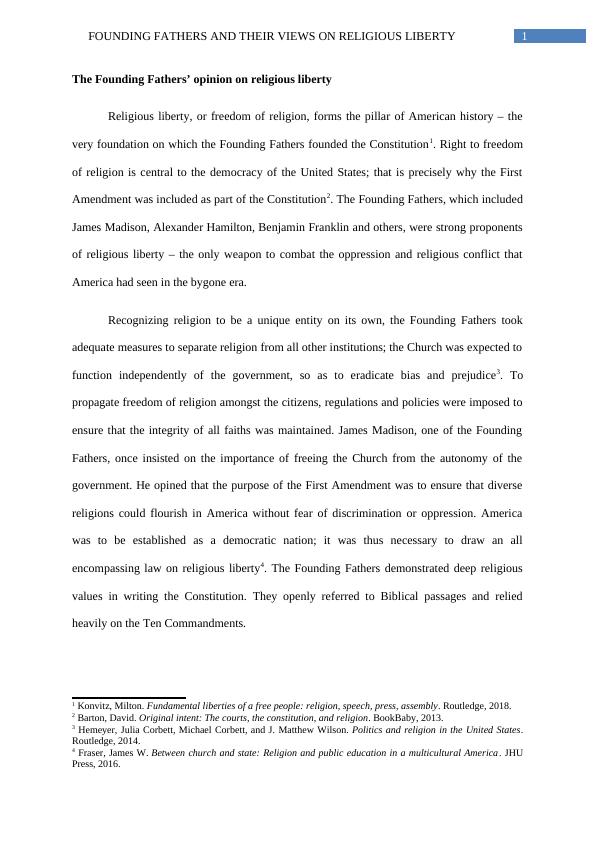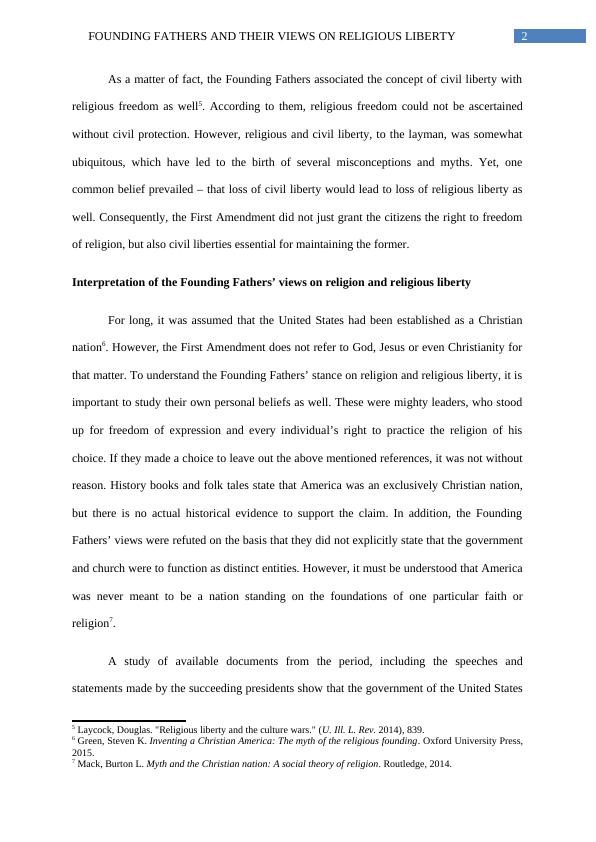Founding Fathers and their Views on Religious Liberty
6 Pages1871 Words240 Views
Added on 2023-06-10
About This Document
This article explores the Founding Fathers' views on religious liberty and their interpretation of the First Amendment. It discusses how the principles of religious freedom are viewed today and the negative consequences of wrongful interpretations of the First Amendment.
Founding Fathers and their Views on Religious Liberty
Added on 2023-06-10
ShareRelated Documents
End of preview
Want to access all the pages? Upload your documents or become a member.
Bill of Rights and Civil Liberties
|5
|915
|496
Civil Liberties and Tort Law.
|7
|1473
|78
An Analysis of the Constitution of U.S.
|5
|1374
|396
Assignment On Political Science
|8
|1788
|46
Analysis of Three Bills of Rights in the US Constitution
|9
|2474
|186
Bill of Rights America Case Study 2022
|5
|1089
|20



